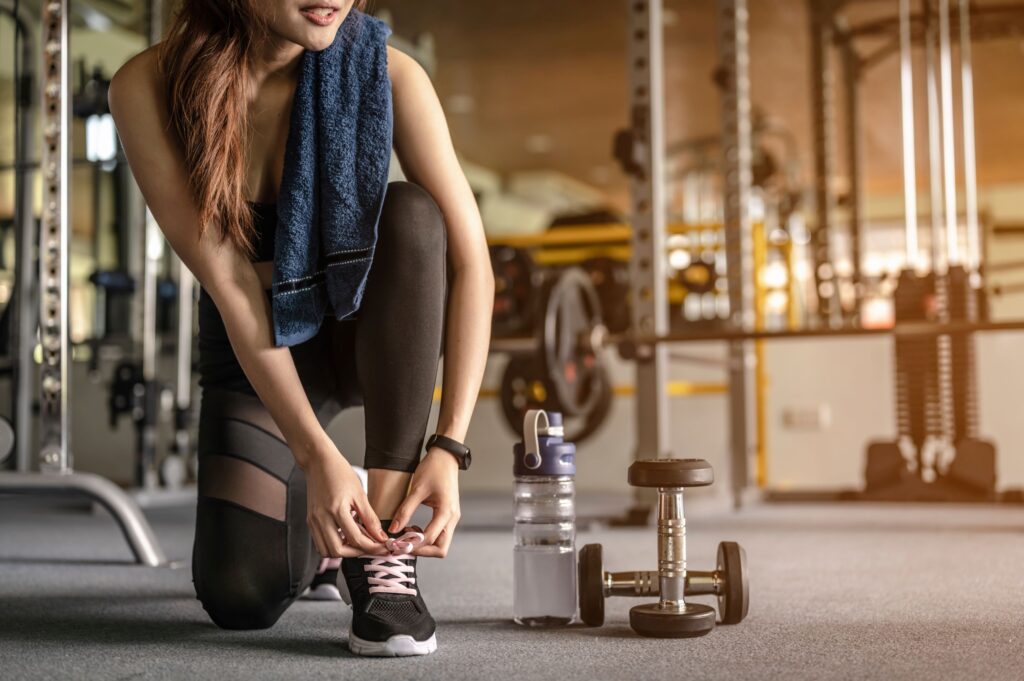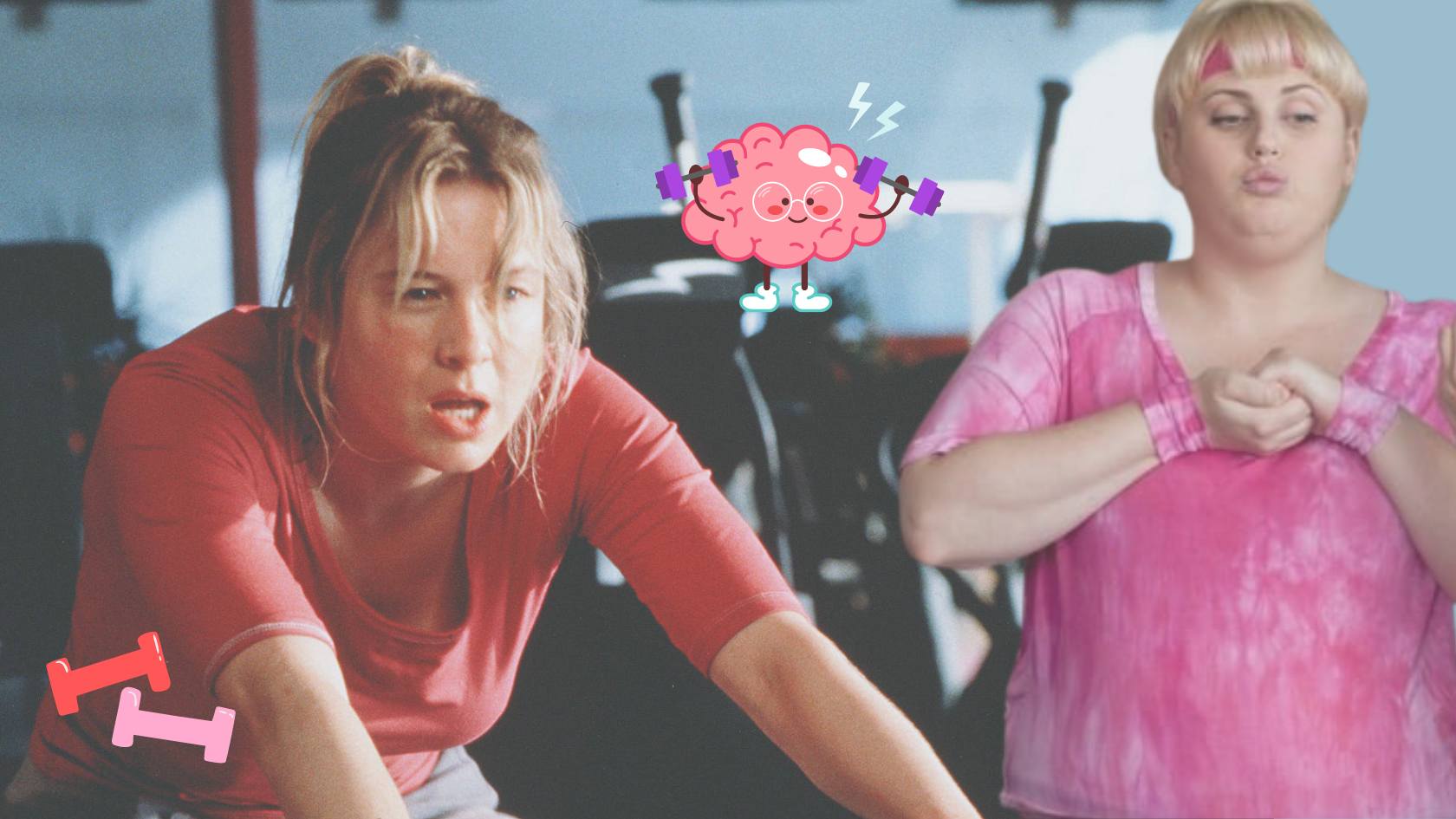With 25 per cent of UK women rarely or never go to the gym due to gym-timidation, according to a report by Pure Gym, it is clear gym anxiety does not discriminate. BBL jacket or not, you might find yourself unable to break a sweat.
To my annoyance, I fall into this percentage. When I joined a new gym it was a humbling experience, I had heard of the gym anxiety phenomenon but never thought I would encounter it first-hand. But when I had to tackle my first solo session, I suddenly resonated with those women who feel sick to their stomachs and overcome with anxiety.

I intended to leave the house at 9am, but with the comfort blanket of my friend gone this target was optimistic. Each time a new hour approached, I would psyche myself up to just remain in my house. I felt so stupid when I finally completed my workout at around midday as I was unsure as to what had caused this pre-gym ordeal, yet it still is a recurring pattern.
‘‘Gym anxiety is anxiety that shows up in relation to the gym. So something like physical sensations of fear, anticipation, nerves, maybe a tight stomach, feeling sick, or thoughts that make someone feel very self-conscious of themselves,’’ says exercise psychologist and personal trainer, Clara Swedlund. ‘‘It often shows up when someone thinks about going to the gym, but it can also show up when someone is in the gym exercising and they just become aware of themselves and their surroundings.’’
I am not alone in the twinge of apprehension felt as you attempt to look composed trying a new machine for the first time, wishing it came with an instruction manual as the unavoidable mirrors showcase the embarrassment. But why are we so quick to assume we are under such scrutiny when the majority are so engrossed in their own workout?
‘‘Gyms are quite intimidating places. There is this idea that people who go to the gym always know what they’re doing, that it’s these big, masculine-looking men who are ripping weights off the floor and grunting, or in a very binary way, women who look very stereotypically like the body ideals. And so 99 per cent of us don’t fit into either of those categories so we imagine ourselves standing out like a sore thumb in that type of environment,’’ says Swedlund. ‘‘I feel because a lot of people’s experiences of exercise when they were younger, PE for example, would have been quite judgmental, that experience and that sense of stress carries over.’’
Whether it’s the yummy mummy aesthetic plastered on your Pinterest board or becoming fixated on the 12-3-30 treadmill workout on your TikTok for you page, exercise has now become more than a keep-fit regime. With the gym girl aesthetic making us fall for temporary trends, we may find ourselves sipping green juice and having a newfound passion for running. Distracted by the accessories we begin to lose sight of why we first wanted to get in shape.
‘‘When I start a new gym programme, I will treat myself to a new pair of leggings because I’m starting something new and it feels very exciting and a lot of my clients do the same thing. I think the issue with this is it glamorises it [going to the gym] and makes another barrier,’’ says Swedlund. ‘‘It’s like, ‘Do I have to have a matching set?’ and ‘Do I have to go with a full face of makeup and slick hair with the girls?’ It is a hindrance because it just makes exercise more complicated than it should be and a lot of people have this feeling that they have to be at that level to even be able to enter.’’
With your sights set on bettering yourself and keeping your well-being in check, succumbing to gym anxiety is simply not an option. So, with focus, determination, self-belief and maybe a cute gym set, facing the discomfort head-on is non-negotiable.

‘‘I would say that being anxious about going to the gym is perfectly normal. A lot of people think that there must be something wrong with them for feeling anxious about going to the gym. Trust me, you’re not weird. Normalise the fact that gym anxiety is a perfectly reasonable response to have to a different environment that you’re in,’’ says Swedlund.
‘‘To overcome these fears, I would suggest finding a gym buddy as meeting someone at the gym is also good accountability’’ says personal trainer, Mollie Millington. ‘‘I would also see if your gym offers a free induction with the equipment and machines, this can help you understand how the machines work and how much weight to use when starting out.’’
Swedlund sheds light on her top tip for combatting gym anxiety. ‘‘ If going to the gym is important to you, are you willing to experience a little bit of anxiety if that means that you get to do the thing that’s important to you? By allowing it to be there and acknowledging that it’s going to be part of the process as you get used to it, but that’s okay and you’ll probably be able to see yourself get to the gym a lot more frequently.’’
It is clear that if you are battling with gym anxiety, you are not alone. Women across the UK, like you and I, feel the same emotions and have the same pep talks before hitting their chosen machine for the day. However, if you want to wave goodbye to gym-timidation it is clear you need to find comfort within the discomfort and celebrate every victory when you do push through the uneasiness.
Expert insight: Clara Swedlund
Clara Swedlund founded The ExerPsych in 2019, with the aim of bridging the gap between the fitness industry and exercise psychology. Clara does this through my psychologically informed fitness coaching service, and through my 1:1 exercise psychology consulting. She also works with sports athletes who want to improve their performance and wellbeing by working with a sports psychologist.
Expert insight: Molly Millington
Molly Millington, also known as ‘The Happiness Personal Trainer’, provides 1-1 or group training sessions. Her clients are mostly women who are looking to start exercising for the first time or have taken a break and are ready to get fit again. She aims to help women find happiness by encouraging personal growth beyond their comfort zone and setting achievable goals to make large and measurable impacts on health and happiness




